Shuke Peng
MTSS: Learn from Multiple Domain Teachers and Become a Multi-domain Dialogue Expert
May 21, 2020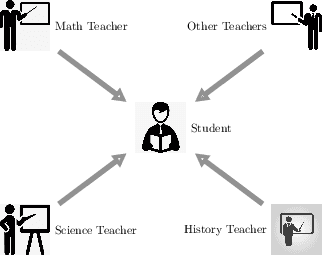

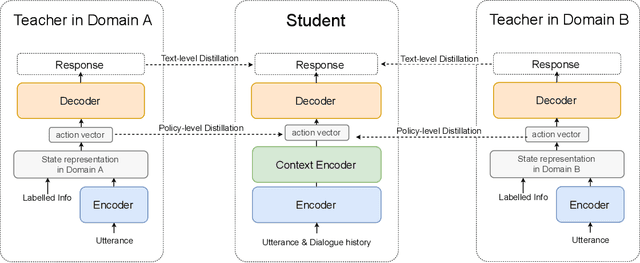
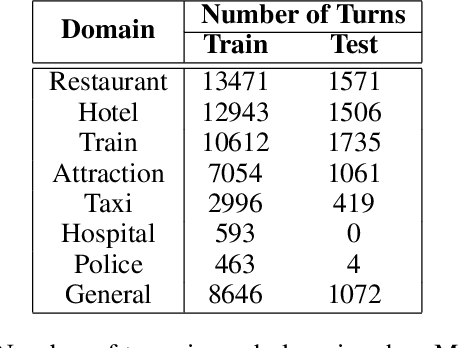
Abstract:How to build a high-quality multi-domain dialogue system is a challenging work due to its complicated and entangled dialogue state space among each domain, which seriously limits the quality of dialogue policy, and further affects the generated response. In this paper, we propose a novel method to acquire a satisfying policy and subtly circumvent the knotty dialogue state representation problem in the multi-domain setting. Inspired by real school teaching scenarios, our method is composed of multiple domain-specific teachers and a universal student. Each individual teacher only focuses on one specific domain and learns its corresponding domain knowledge and dialogue policy based on a precisely extracted single domain dialogue state representation. Then, these domain-specific teachers impart their domain knowledge and policies to a universal student model and collectively make this student model a multi-domain dialogue expert. Experiment results show that our method reaches competitive results with SOTAs in both multi-domain and single domain setting.
Teacher-Student Framework Enhanced Multi-domain Dialogue Generation
Aug 20, 2019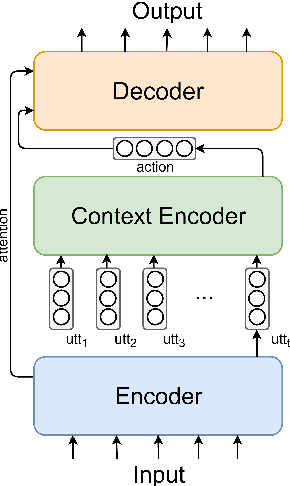

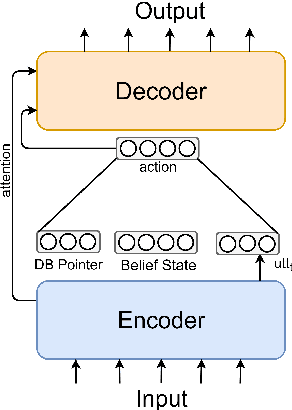
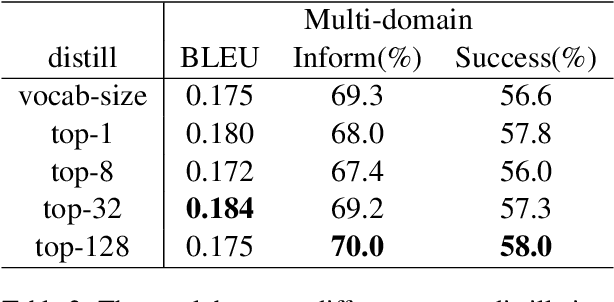
Abstract:Dialogue systems dealing with multi-domain tasks are highly required. How to record the state remains a key problem in a task-oriented dialogue system. Normally we use human-defined features as dialogue states and apply a state tracker to extract these features. However, the performance of such a system is limited by the error propagation of a state tracker. In this paper, we propose a dialogue generation model that needs no external state trackers and still benefits from human-labeled semantic data. By using a teacher-student framework, several teacher models are firstly trained in their individual domains, learn dialogue policies from labeled states. And then the learned knowledge and experience are merged and transferred to a universal student model, which takes raw utterance as its input. Experiments show that the dialogue system trained under our framework outperforms the one uses a belief tracker.
 Add to Chrome
Add to Chrome Add to Firefox
Add to Firefox Add to Edge
Add to Edge